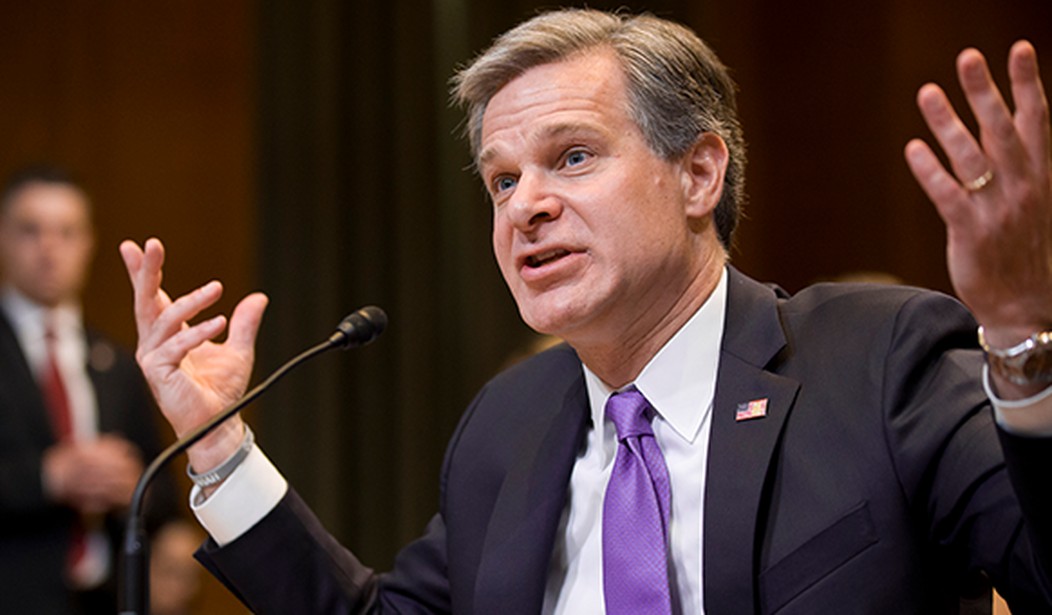REPORT: Christopher Wray Preparing Resignation As FBI Director
FBI Director Christopher Wray plans to resign on or before Inauguration Day, according to recent reports. The move, widely seen as preemptive, reflects growing pressure from Republican lawmakers, led by Senator Charles Grassley, and signals yet another shift in leadership for an agency that has been at the center of political and institutional controversies over the past several years.
While Wray’s resignation isn’t entirely unexpected, it raises important questions about the future of the FBI, the challenges it faces, and the public’s trust in one of the nation’s most powerful institutions. This moment offers an opportunity to reflect on Wray’s tenure, the criticisms that have mounted against him, and what a new era of leadership under Donald Trump’s administration could mean.
Wray, who was appointed FBI director in 2017 by former President Donald Trump, appears to be stepping down to avoid an inevitable firing under Trump’s return to the White House. Sources close to Wray suggest that he does not want to endure a public dismissal, which aligns with reports that his “days were numbered” under a Trump administration.
Wray’s potential resignation highlights the tense relationship between the FBI and Trump-era Republicans, who have long expressed dissatisfaction with the bureau’s leadership. This friction has been fueled by high-profile incidents like the raid on Trump’s Mar-a-Lago home and whistleblower allegations of political bias within the FBI. For critics, Wray’s leadership symbolizes an agency in turmoil, accused of failing to address internal misconduct while projecting partisanship in its investigative priorities.
A significant catalyst for Wray’s decision was Senator Charles Grassley’s scathing letter earlier this week. Grassley, who will assume chairmanship of the Judiciary Committee next month, delivered a damning critique of Wray’s tenure, stating that it was "time for you and your deputy to move on to the next chapter in your lives."
Grassley’s letter cited a host of grievances, including politically biased investigations and alleged retaliation against whistleblowers. He specifically called out the FBI’s handling of the Trump raid, where armed agents executed a warrant that led to widespread criticism from conservatives. Grassley’s frustrations aren’t new; he has repeatedly clashed with the FBI over allegations of abuse of power and what he sees as a lack of accountability within the bureau.
The senator’s “vote of no confidence” also extended to Deputy Director Paul Abbate, who had initially planned to stay on until mid-2025 to assist in the leadership transition. Grassley’s letter appears to have accelerated that timeline, with Abbate reportedly seeking a replacement to take over as acting deputy director.
Following Wray’s departure, Abbate is expected to step in as acting director temporarily. However, Trump has already named Kash Patel as his pick to lead the FBI—a move that signals a major shake-up for the bureau. Patel, known for his loyalty to Trump and his role as a senior adviser in the National Security Council, is widely expected to take a harder line on FBI reforms and internal accountability.
Trump Shreds FBI Director Christopher Wray—'He Invaded My Home'
Patel’s selection aligns with Trump’s long-standing criticisms of the FBI and his calls for a top-down restructuring of the agency. As a staunch ally of Trump, Patel’s leadership is likely to be focused on addressing conservative grievances about the FBI’s perceived bias and reinforcing the bureau’s accountability to Congress and the American public.
The FBI’s reputation has faced repeated blows in recent years, with accusations of political interference, overreach, and a lack of transparency dominating headlines. The raid on Mar-a-Lago, in particular, served as a flashpoint for Republicans, who argue that the bureau’s actions represented a dangerous precedent for the politicization of law enforcement.
At the same time, the FBI has defended its record under Wray, pointing to its efforts to cooperate with congressional oversight and address internal issues. In a statement to The Washington Times, the bureau said, “Director Wray and Deputy Director Abbate have taken strong actions toward achieving accountability in the areas mentioned in the letter and remain committed to sharing information about the continuously evolving threat environment facing our nation.”
Whether these efforts are enough to repair the FBI’s image is up for debate. For many Americans, particularly those on the right, the bureau remains a symbol of an entrenched bureaucracy that operates with insufficient checks and balances. Critics argue that a fresh start under new leadership is essential to restoring public confidence and ensuring the FBI serves its intended mission without bias.
Wray’s resignation marks a turning point for the FBI. With Kash Patel poised to take over, Republicans see an opportunity to reshape the bureau in line with their vision of greater accountability and less political entanglement. However, the challenges ahead are steep: the FBI must not only address its internal issues but also navigate external threats to national security in an increasingly unstable world.
For Republicans, this moment represents a chance to redefine the role of the FBI under Trump’s administration. For Americans at large, it is a moment to reflect on the balance between law enforcement independence and accountability to the people. Wray’s departure may close one chapter, but it is only the beginning of a much larger story about the future of federal law enforcement in the United States.





Post a Comment